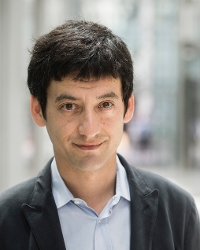
International consortia: the future for science?
We increasingly look at international consortia to come up with scientific and technological advances that are needed to address global challenges in areas such as health, the environment and clean energy. However, organising these consortia involves unique challenges. To identify these challenges, Professor of Science Based Business Simcha Jong has been awarded an ERC Consolidator Grant of 2 million euros.
Cases
Jong and his team of three PhD students and two postdocs will study a number of international consortia. One of these is the International Thermonuclear Experimental Reactor, or ITER for short: a global consortium of more than 18 billion euros, with the aim of building a nuclear fusion reactor. Another consortium Jong will explore is the EU Human Brain Project. This 1 billion euro project uses ICT techniques to make a model of the human brain. Jong will also look at international collaborations around the interpretation of imaging data generated by the new generation of NASA and ESA earth observation satellites. Jong will focus on four challenges in organising these consortia.
Coordinating work
International consortia are highly complex organisations with project budgets that sometimes run in the billions of euros. The work of consortia is spread over numerous international locations and requires cooperation between stakeholders from across the realms of science, policy, and industry from different countries. This makes coordinating work within these consortia challenging, often resulting in delays and cost overruns. Jong will study organisational coordination problems which international consortia face from different angles. For example, two of his PhD students will conduct ethnographic research into the daily life within consortia.
New dividing lines
According to Jong, international consortia play an increasingly important role in setting scientific agendas. He is therefore interested in studying questions such as: Who decides? What are the scientific agendas of these consortia? Are researchers excluded? For example, he mentions controversies during the start of the Human Brain Project in 2013: 'Certain groups of brain scientists said: "If the project goes in this direction, we will not participate".' By means of a large survey, Jong hopes to find out what the views and experiences are of various researchers regarding consortia.
Political and economic aspects
Politics also plays an important role. 'These kinds of projects navigate in a constantly changing political climate, with all kinds of countries having their own interests', says Jong. 'In addition, there is the economic aspect. There are rich countries, poor countries; that creates a tension.'
Collaboration with industry
Companies also generally play an important role in international consortia. 'Think of the IT infrastructure, but also of instrumentation for research', says Jong. Companies are also important in the commercialisation of new technologies. 'The business community has a great deal of expertise in this, which consortia need.' To better identify the dynamics between commercial and academic interests within international consortia, Jong will study a number of these collaborations.
Expectations about project outcomes
Jong expects his project to show how international consortia can tackle these challenges. 'In addition, I think that this project will provide more clarity about for what kind of projects consortia have an added value, and in which projects it is probably better to do research at one location.' He also expects output in the form of papers and workshops. Jong is clear about the importance of this research: 'These consortia are becoming increasingly important. Despite the current zeitgeist, there is generally strong public support for more international collaboration in science. However, problems such as delays and cost overruns around international consortia risk undermining this. That is why my project is of great importance', he concludes.

Simcha Jong has an interdisciplinary, international profile that fits well with the character of this project. He is a social scientist, but often works together with researchers from the natural sciences and the medical side. Jong also has an international career: he taught at the UCL School of Management, the Harvard School of Public Health and now in Leiden as professor and director of Science Based Business at the Faculty of Science.
